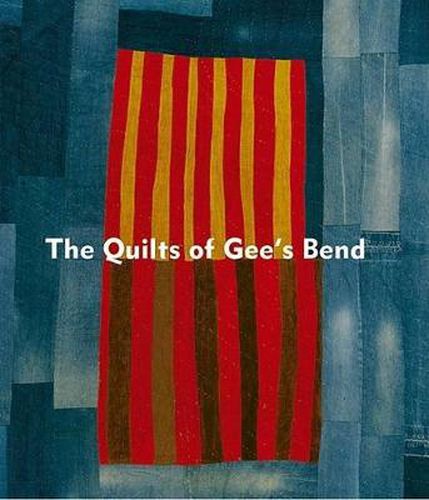Readings Newsletter
Become a Readings Member to make your shopping experience even easier.
Sign in or sign up for free!
You’re not far away from qualifying for FREE standard shipping within Australia
You’ve qualified for FREE standard shipping within Australia
The cart is loading…






A must have for anyone interested in graphic design or quilts of any type - An heirloom-quality art book that will also appeal to hands-on quilters - One of the most compelling human stories and discoveries in recent American art - The most significant exhibition of black-made quilts ever mounted Gee’s Bend. Alabama is like no other place in America. There the bonds between the nineteenth century and the twenty-first are still as vital as the masterpiece quilts made by the town’s women, many of whom learned their art from their grandmothers born in slavery. Since the 1970s, Gee’s Bend has struggled to survive as a community; many young people migrated north or further south, while their parents and grandparents adjusted to a chronically economy and lack of opportunities. Today, Wilcox County remains 70 percent black and one of the poorest places in the United States. Gee’s Bend has relatively few remaining residents, yet they continue to be a remarkably close-knit and resilient people, whose sense of place and identity has withstood every setback.
$9.00 standard shipping within Australia
FREE standard shipping within Australia for orders over $100.00
Express & International shipping calculated at checkout
A must have for anyone interested in graphic design or quilts of any type - An heirloom-quality art book that will also appeal to hands-on quilters - One of the most compelling human stories and discoveries in recent American art - The most significant exhibition of black-made quilts ever mounted Gee’s Bend. Alabama is like no other place in America. There the bonds between the nineteenth century and the twenty-first are still as vital as the masterpiece quilts made by the town’s women, many of whom learned their art from their grandmothers born in slavery. Since the 1970s, Gee’s Bend has struggled to survive as a community; many young people migrated north or further south, while their parents and grandparents adjusted to a chronically economy and lack of opportunities. Today, Wilcox County remains 70 percent black and one of the poorest places in the United States. Gee’s Bend has relatively few remaining residents, yet they continue to be a remarkably close-knit and resilient people, whose sense of place and identity has withstood every setback.